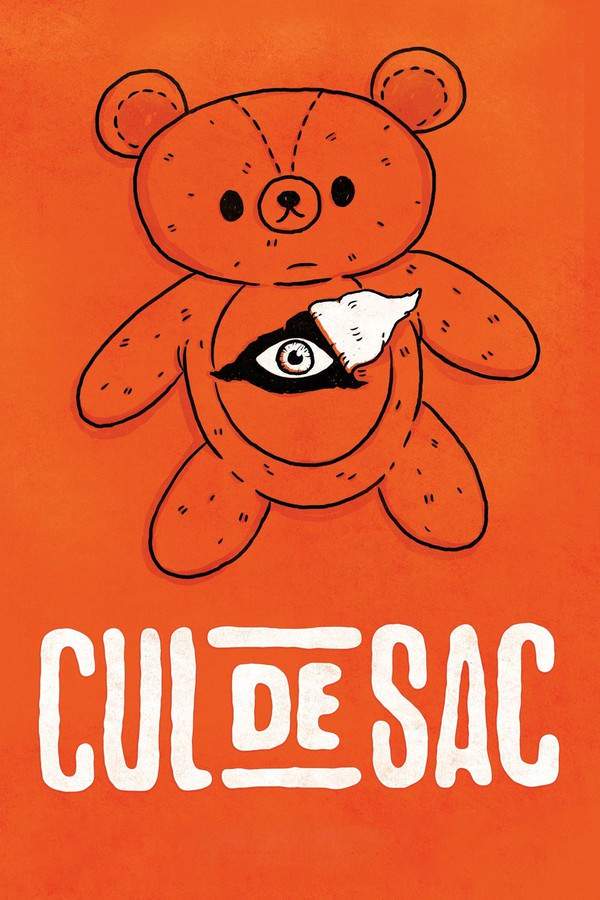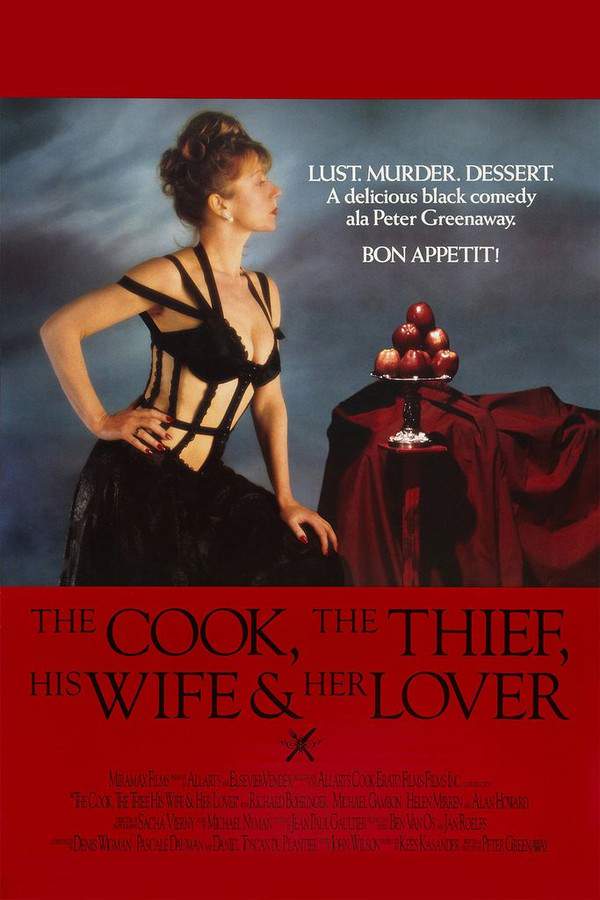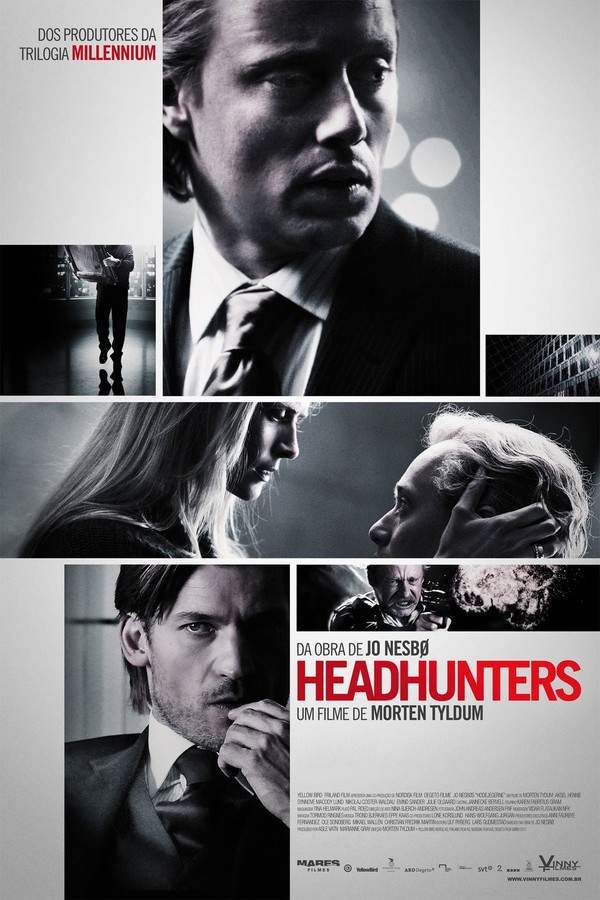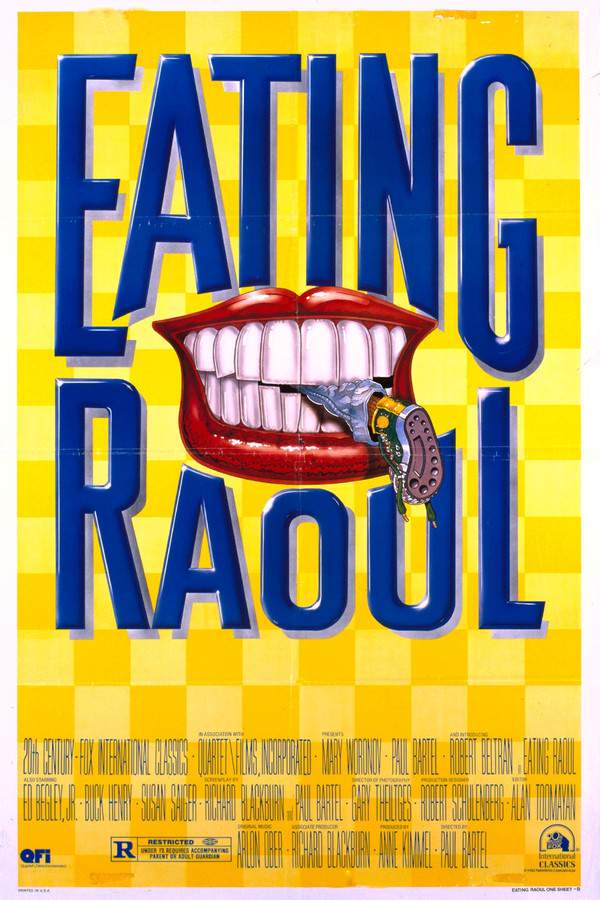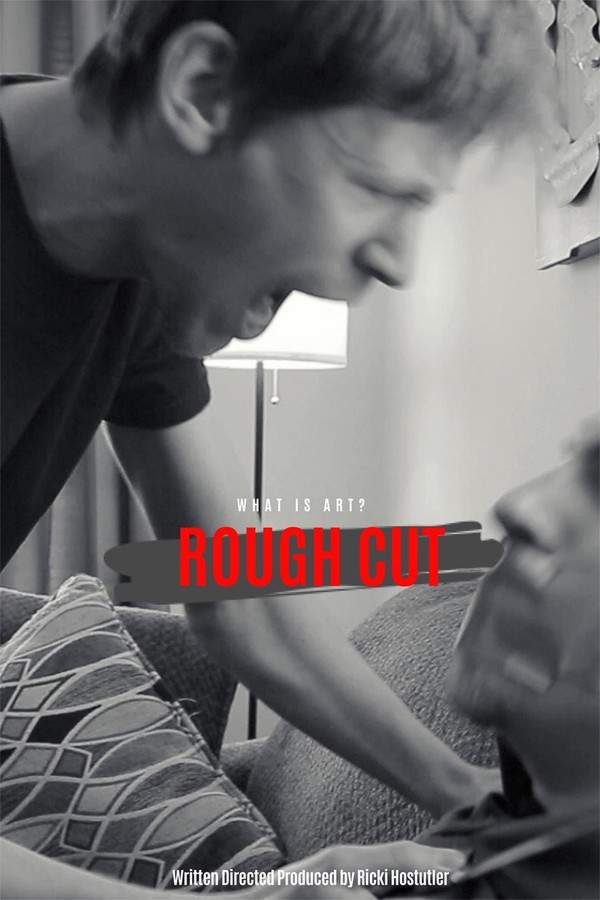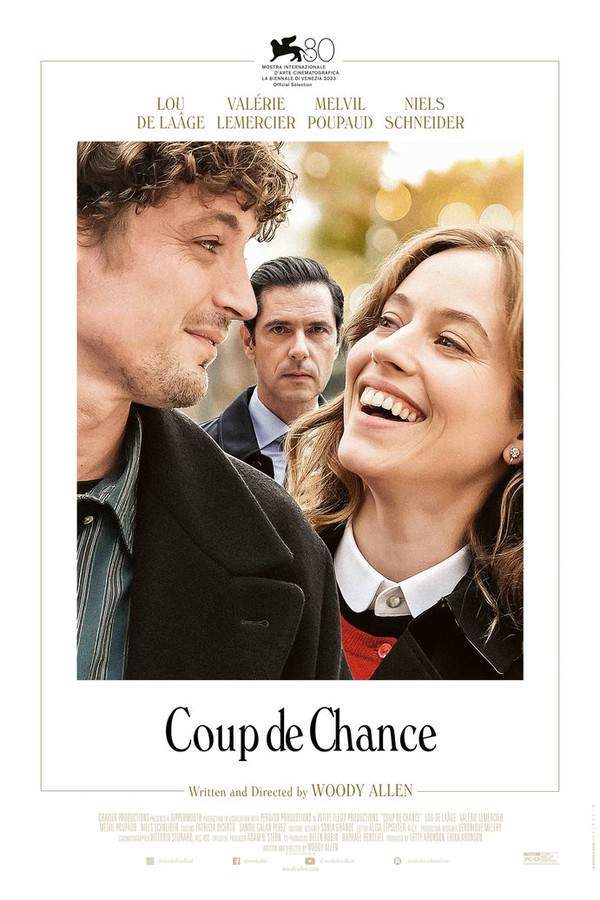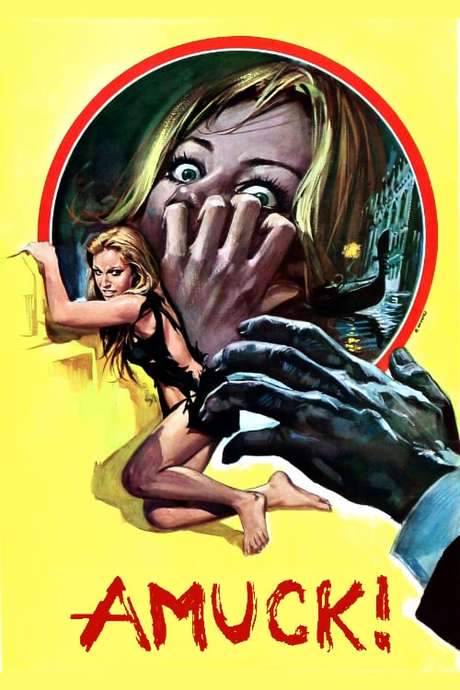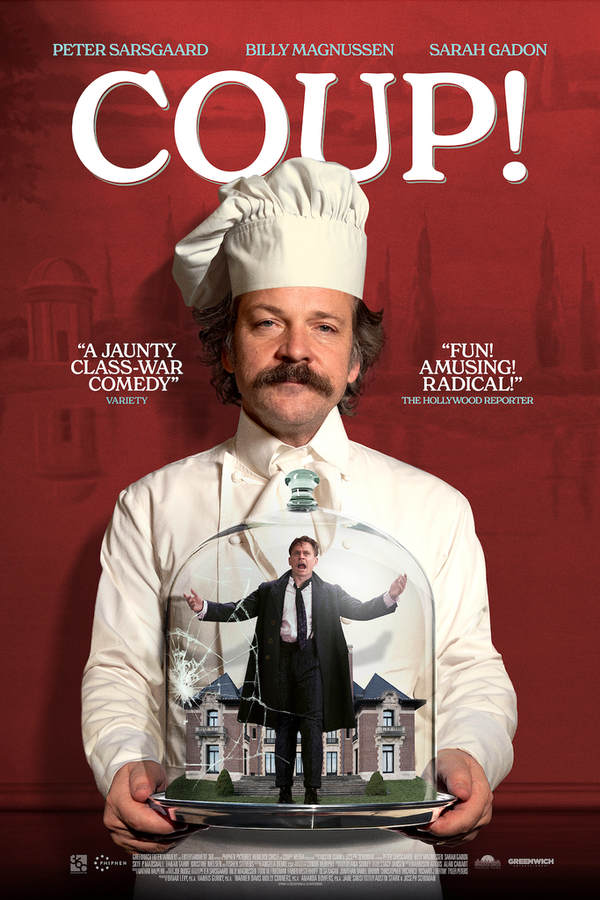
Coup!
Year: 2024
Runtime: 1 h 38 m
Language: english
Directors: Austin Stark, Joseph Schuman
Echo Score: 68A journalist and his socialite wife are taken by surprise when a charming con artist arrives as their private chef at their coastal estate. Unbeknownst to the couple, a strange illness is affecting the staff, creating an atmosphere of rising tension. The resourceful chef secretly plots a daring rebellion against the wealthy hosts, leading to a suspenseful and unpredictable power struggle.
Warning: spoilers below!
Haven’t seen Coup! yet? This summary contains major spoilers. Bookmark the page, watch the movie, and come back for the full breakdown. If you're ready, scroll on and relive the story!
Coup! (2024) – Ending Explained & Final Scene Breakdown
Still thinking about how Coup! (2024) ended? Here’s a full breakdown of the ending, key final moments, major twists, and the deeper meaning behind the film’s conclusion.
Floyd’s ultimate fate in the movie serves as a culmination of the story’s core themes, especially the idea that social hierarchies are deeply ingrained and resistant to genuine change. Throughout the film, Floyd, who initially appears as a charming but suspicious outsider, reveals that he is not the real Floyd Monk but a man from the working class seeking revenge and justice against the oppressive upper class, to which Jay and his family belong. His true purpose is to shake up the comfortable, insulated life of the mansion’s inhabitants and expose their ignorance and complicity in societal inequality. When Floyd is finally shot and killed by Jay, it symbolically signifies the tragic failure of revolutionary effort within a system that is too entrenched to be fundamentally altered by violence or individual acts.
In his death, Floyd achieves many of his goals — he outsmarts Jay, takes Jules’ affections fleetingly, and demonstrates that the social divide can be turned upside down — yet the broader impact remains limited. Jay, now appearing as a hero who saved his family, returns to his oppressive life, and Jules chooses to ignore the truth of what transpired. The death of Floyd signifies that, despite moments of rebellion and upheaval, the existing power structures and societal hierarchies largely persist. Floyd’s demise isn’t just about killing a man; it’s about illustrating that radical change, especially through violence, rarely rewires the ingrained social fabric but often reinforces it. Ultimately, the ending leaves viewers with the idea that true societal transformation requires more than just drastic acts — it demands deep, systemic change that cannot be achieved through individual revenge or covert coups. Floyd’s death is both an individual triumph and a tragic reminder of the stubbornness of societal inequality.
Floyd’s death in the film symbolizes the futility of attempting to fundamentally alter an entrenched social hierarchy through violent rebellion. Throughout the story, Floyd, who is not actually the original Floyd Monk but a man driven by resentment against the upper class, aims to deliver a lesson by infiltrating and destabilizing Jay’s mansion. His ultimate act of being shot by Jay signifies the failure of revolution to truly dismantle systemic inequality. Although Floyd manages to overturn Jay’s authority temporarily, he also manages to seduce Jules and fulfill his personal vendetta, suggesting that he has achieved his goals of exposing the hypocrisy and fragility of the upper classes.
However, the broader message is that violence or individual acts of defiance rarely lead to lasting societal change. After Floyd’s death, Jay and Jules return to their privileged lives, with Jules choosing silence and normalcy, in spite of their moral conflict. This highlights a bleak reality: despite moments of chaos and rebellion, the top-down social order remains largely intact. Floyd’s death, therefore, functions as both a personal victory for him — as an agent of upheaval — and a tragic symbol of how deeply rooted inequalities persist, unaffected by individual acts of defiance. The film suggests that genuine change requires more than coups or violence; it demands systemic overhaul, which seems unlikely to occur merely through the destructions Floyd initiated. In the end, Floyd’s death underscores the stubbornness of societal hierarchy and the tragic limits of rebellion within it.
Floyd’s death signifies the fleeting nature of rebellion against an unchanging social order. He successfully undermines Jay, exposes his hypocrisy, and briefly disrupts the stability of the mansion, achieving his personal vendetta and delivering his lesson. But in the larger scheme, Floyd’s death—that final act of violence—does little to alter the society that created such divides. Jay, recovering from his weakness, ultimately reverts to his role as the archetypal privileged elite, shooting Floyd to restore his sense of control and normalcy.
This ending suggests that real societal change is elusive; violence and coups may temporarily shake the surface, but they rarely dismantle the deep-rooted inequalities. Floyd’s death is a tragic reminder that systemic oppression is resilient, and the structures that uphold class divisions tend to survive individual upheavals. While Floyd might have momentarily succeeded in his revolutionary act, the film posits that lasting transformation requires more than violent revolt—it calls for systemic change that is far more complex and difficult. Floyd’s demise symbolizes both his personal victory in exposing the rot beneath the façade and the grim reality that entrenched power and inequality tend to withstand even the most dramatic upheavals.
Floyd’s death highlights the tragic truth that efforts to overthrow a deeply rooted social hierarchy often end in failure and loss. Although he manages to outsmart and temporarily destabilize Jay, and even win Jules’s affection, his death symbolizes the persistent strength of the class system in the long run. Jay’s revenge — shooting Floyd and assuming his position — restores the status quo, ensuring that the social divide remains intact.
This conclusion reinforces the idea that revolutionary acts, especially violent ones, rarely produce lasting change. Floyd, despite his success in exposing the corrupt elite, ultimately becomes a martyr whose death underscores the resilience of the societal structures that keep the wealthy and powerful in their place. The film suggests that true transformation requires more than chaos and revenge; it demands systemic reform, which seems unlikely to happen just through individual acts of rebellion. Floyd’s death is both a personal victory, as he destroys the illusion of the perfect social order, and a tragic reminder that real societal change is extraordinarily difficult, if not impossible, to achieve through violence alone. In the end, his demise signifies that the oppressive hierarchy is stubborn, and any attempt to overthrow it is likely to be only temporarily effective, leaving the fundamental inequality unaltered.
Last Updated: June 25, 2025 at 09:02
Unlock the Full Story of Coup!
Don't stop at just watching — explore Coup! in full detail. From the complete plot summary and scene-by-scene timeline to character breakdowns, thematic analysis, and a deep dive into the ending — every page helps you truly understand what Coup! is all about. Plus, discover what's next after the movie.
Coup! Summary
Read a complete plot summary of Coup!, including all key story points, character arcs, and turning points. This in-depth recap is ideal for understanding the narrative structure or reviewing what happened in the movie.

Coup! Timeline
Track the full timeline of Coup! with every major event arranged chronologically. Perfect for decoding non-linear storytelling, flashbacks, or parallel narratives with a clear scene-by-scene breakdown.

Similar Movies to Coup!
Discover movies like Coup! that share similar genres, themes, and storytelling elements. Whether you’re drawn to the atmosphere, character arcs, or plot structure, these curated recommendations will help you explore more films you’ll love.
Explore More About Movie Coup!
Coup! (2024) Plot Summary & Movie Recap
Coup! (2024) Scene-by-Scene Movie Timeline
Coup! (2024) Movie Characters, Themes & Settings
Coup! (2024) Spoiler-Free Summary & Key Flow
Movies Like Coup! – Similar Titles You’ll Enjoy
Duet for Cannibals (1969) Full Summary & Key Details
Cul-de-sac (1966) Full Summary & Key Details
The Cook, the Thief, His Wife & Her Lover (1990) Full Summary & Key Details
Headhunters (2012) Movie Recap & Themes
The Menu (2022) Movie Recap & Themes
Eating Raoul (1982) Full Movie Breakdown
Rough Cut (1980) Ending Explained & Film Insights
Coup de Chance (2024) Spoiler-Packed Plot Recap
Cum to live (2001) Detailed Story Recap
Vicious and Nude (1980) Film Overview & Timeline
Coup de Torchon (1981) Film Overview & Timeline
The Cook, the Thief, His Wife & Her Lover (1989) Film Overview & Timeline
The Cuckoo’s Curse (2023) Story Summary & Characters
Amuck! (1972) Movie Recap & Themes
Who Is Killing the Great Chefs of Europe? (1978) Story Summary & Characters




